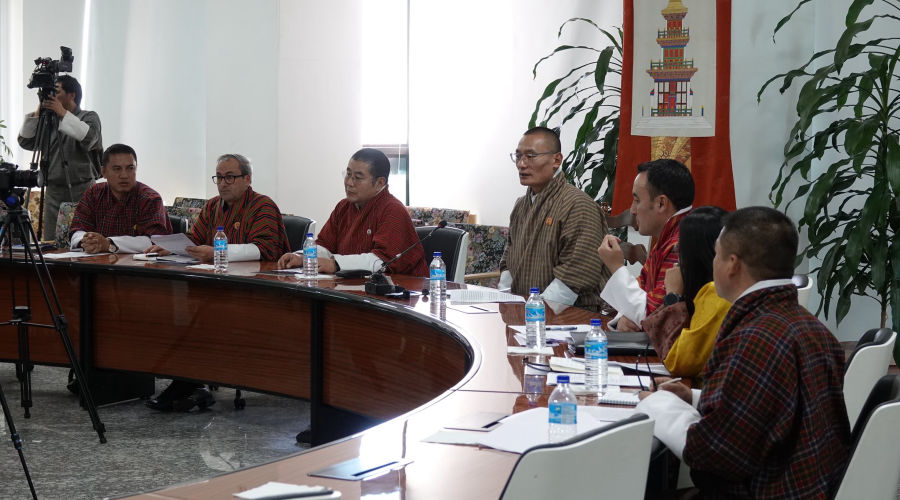 Bhutan loses 2.6 per cent of its GDP each year to alcohol-related problems, putting pressure on both the health system and society. This accounts for around Nu 6.5bn loss annually to the government’s coffer. The health minister shared this during the Meet the Press session today. The minister highlighted some striking figures and outlined what the government is doing to tackle the problem.
Bhutan loses 2.6 per cent of its GDP each year to alcohol-related problems, putting pressure on both the health system and society. This accounts for around Nu 6.5bn loss annually to the government’s coffer. The health minister shared this during the Meet the Press session today. The minister highlighted some striking figures and outlined what the government is doing to tackle the problem.
Alcohol is still one of the most easily available commodities in Bhutan, and it is taking a heavy toll. Of the total loss, Nu 2.5bn is attributed to direct costs-including healthcare, crime, and traffic accidents.
The remaining Nu 4bn represents indirect costs, such as lost productivity, disability, and premature mortality.
The health minister stressed how non-communicable diseases, such as alcoholic liver disease, are consistently the top cause of death in the country.
He added that the ministry has also observed a near doubling of issues such as mental and behavioural disorders related to alcohol activities since 2019, as per the Annual Health Bulletins.
He also said that alcohol was a contributing factor to around 10 per cent of the 1,062 road traffic accidents in 2023.
Moreover, a hospital-based study at the national referral hospital revealed that 37 per cent of all injury cases tested positive for alcohol.
The minister said that these are not just mere figures. It represents lives lost, families destabilised, and an increasing strain on health resources.
Considering these figures and issues, there are strategies currently in place to reduce alcohol-related harm in the country.
The minister said that awareness is a key strategy to educate people about its harmful effects, its impact on youth and families, and its role in causing diseases.
Hence, he said that the government is working with local leaders and civil society organisations to reduce alcohol consumption in the country.
Additionally, he said that alcohol screening is mandatory in primary health care services to help reduce the number of alcohol consumers.
Currently, the ministry provides counselling services to individuals struggling with alcohol addiction across the country.
Another strategy includes enforcing identity checks in entertainment centres and bars to prevent those under 18 from consuming alcohol.
“A key focus area is also road safety. We are working with the Royal Bhutan Police and the Bhutan Transport and Construction Authority to strictly monitor and penalise drunk driving. We impose higher fines and are also raising awareness among drivers. Currently, the permissible blood alcohol concentration in breath tests is 0.8 per cent, but we are working to reduce it to 0.5 per cent,” said Tandin Wangchuk, Health Minister.
Moreover the ministry also has plans to provide training to monastic bodies and religious centres so they can spread awareness about the negative impacts of alcohol during religious events.
“Regarding home-brewed alcohol, or ara, we are addressing the issue as well. Since brewing is a common practice in villages, it cannot be reduced overnight. However, we are engaging with local governments to develop Community-Based Guidelines for Safer Brewing Practices,” added the Health Minister.
The health ministry is also working with all relevant stakeholders to develop a five-year strategy based on the results, challenges, and recommendations from the 2015–2020 Market Sector Action Plan.
Devika Pradhan & Namgay Dema
Edited by Kipchu










